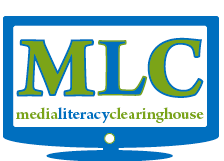The Language of the 21st Century: Words & Phrases Your Students Need to Know
by Frank W Baker (to be published Jan 2022)
Metaverse? Prebunking? Participatory Disinformation?
Do these words and phrases look familiar to you? They didn’t to me. But I encountered them while reading the news. After “looking them up,” I wondered how many of us know what they mean. (See their definitions at the bottom of this blogpost.)
I was a late adopter to owning a mobile phone. So, when I heard a commercial mention “roaming” all I could think about was that line from the song “Home On The Range” (“give me a home where the buffalo roam”). What was roaming, I asked? Now that I own a phone, I know.
When you consider the new media and technology that have come into our lives, no doubt there was new vocabulary you and your students had to get accustomed to knowing and using.
The computer had “a mouse.” Mobile phones and tablets now have “apps.” Television and related devices employ DVRs (digital video recorders). Many of us are fans of “streamers”.
The introduction of new media and technology offer additional opportunities to add words and phrases to our students’ vocabulary.
With that in mind, I recently began to post a weekly media literacy word or phrase of the week on my Facebook page (https://www.facebook.com/medialitman) and on my Twitter feed (@fbaker).
Many of these become part of our popular culture vernacular perhaps without us even understanding their exact meaning.
Timely words and phrases
With the start of the pandemic, we were introduced to words/phrases like “contact tracing,” “infodemic,” “super spreader,” and “long-haulers”—words and phrases that were used frequently in the news.
At the same time, because I have been a long-time media literacy advocate, I wanted educators (and their students) to be aware of some common media literacy terms that may or may not appear in your state’s teaching standards. Here I am referring to bias,
techniques of persuasion, propaganda, stereotypes, and representation, among many others.
Incorporating words and phrases into instruction
On the Media Literacy Word/Phrase of The Week web page where I post weekly, I offer educators this advice:
– introduce the word/phrase
– challenge students to research the meaning of the word/phrase
– have them locate the word/phrase in a recent news story
Obviously, you don’t have to use THIS week’s word or phrase. Choose any word and decide when and where it would be appropriate to use with your students.
Different groups employ their own words/phrases
Many middle grades educators have recently spent a great deal of their time helping students understand “fake news,” “conspiracy theory,” “disinformation,” “misinformation,” and “news literacy.”
Every year, during the TV and film awards seasons, I begin to see, hear and read commonly used words and phrases. Examples here include “for your consideration,” showrunner, and artistic license.
During the election time of year, journalists and broadcasters employ phrases like “horse race,” “dark money,” “battleground states,” direct-mail, and stagecraft.
The advertising industry is one that often employs “insider” terminology. Examples include: upfronts, “behavioral targeting,” influencers, “dark advertising,” demographics and “product placement.”
The advancements in technology have introduced us to “artificial intelligence,” deepfakes, ransomware, algorithm, “facial recognition,” “net neutrality,” “twitter bots” and much more.
What words/phrases do you want students to know?
No doubt you may have your own words or phrases you want students to know and understand.
It is my hope that you will consider engaging your students in any one of the weekly posted words and phrases on my web page.
——————————————————————–
Metaverse: “a virtual-reality space in which users can interact with a computer-generated environment and other users.”
Prebunking: “the process of debunking lies, tactics, or sources before they strike”
Participatory Disinformation: the process through which disinformation is spread through groups, technology and people
————————————————————————-
Frank Baker has been contributing to Middleweb for more than 10 years. (If you’re just now discovering his posts and “media literacy”, he invites you to read more of his columns/posts as well as his web site, the Media Literacy Clearinghouse.) He is the author of “Close Reading The Media” a collaboration with Middleweb and Routledge publishers. He estimates he has conducted hundreds of media literacy workshops with K-12 teachers in more than 20 years of work. Contact him at fbaker1346@gmail.com and follow him on Twitter: @fbaker
Share This Page:


